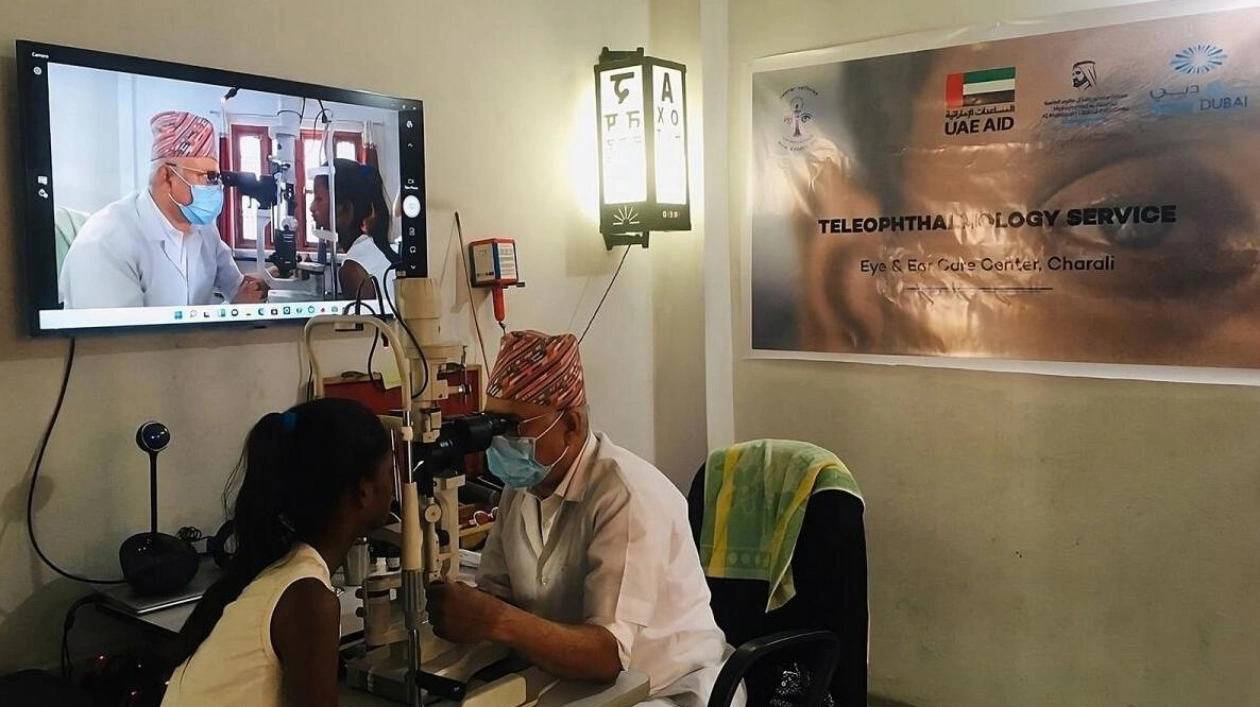A Dubai-based non-profit charitable organization, committed to combating blindness and visual impairment globally, is striving to enhance eye care for inhabitants in distant regions of Nepal.
The Noor Dubai Foundation, in collaboration with Nepal Netra Jyoti Sangh (NNJS), has initiated a tele-ophthalmology program in Nepal, aiming to benefit nearly half a million individuals by expanding access to eye care services over the next three years. It is estimated that 6.8 million people in Nepal experience vision loss, with only 8.4 ophthalmologists per million population.
This initiative is projected to improve primary eye care for 433,000 patients across 15 eye centers and facilitate expert consultant reviews for 82,000 individuals via teleophthalmology. Beyond primary care and expert consultations, the program also emphasizes human resource development and community empowerment by training 15 allied ophthalmic staff and six ophthalmologists in teleophthalmology.
Furthermore, the program seeks to enhance health infrastructure by linking 15 primary and two tertiary eye centers for improved services. With an investment of Dh1,070,252 over three years, a total of 11 million people are anticipated to benefit from this program.
The program is designed to advance the United Nations Sustainable Development Goals by leveraging technology to address global health challenges, including enhancing access to quality eye care, investing in human capital, improving infrastructure, and reducing inequalities.
Dr. Manal Taryam, board member and CEO of the Noor Dubai Foundation, expressed: “We are privileged to collaborate with NNJS to achieve significant impact in the targeted areas. Through teleophthalmology, we aim to revolutionize eye care service delivery, ensuring maximum accessibility for those in need and leaving a profound legacy in global health and well-being.”
Prof. Chet Raj Pant, chairperson of NNJS, highlighted that the tele-ophthalmology service, supported by the Noor Dubai Foundation, will connect remote and rural Nepalese citizens with specialized eye treatment services in their eye hospitals. “In our geographically challenging nation, teleophthalmology provides a more efficient means to deliver specialized eye care directly to patients in their homes,” stated Prof. Pant.






